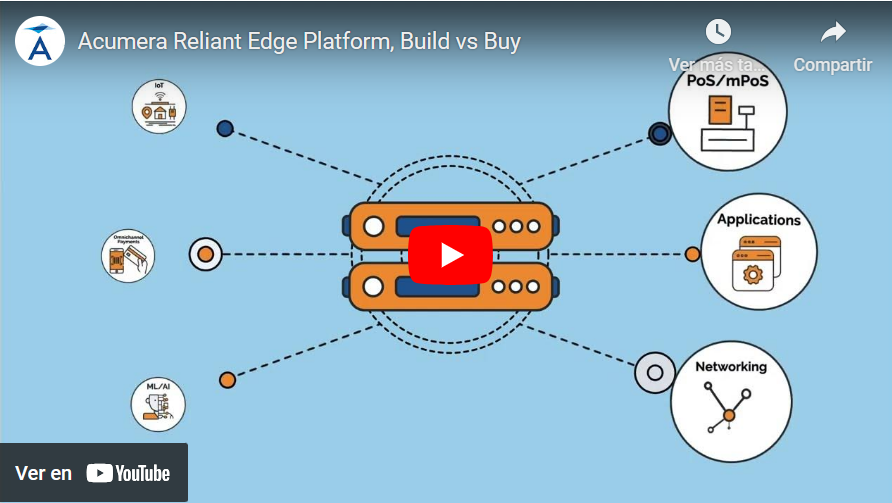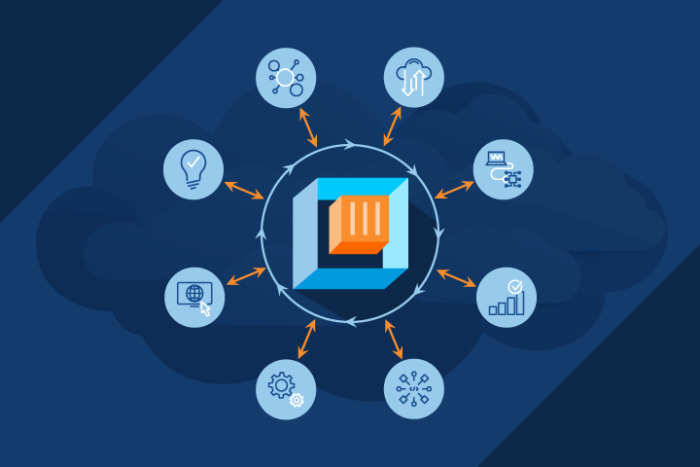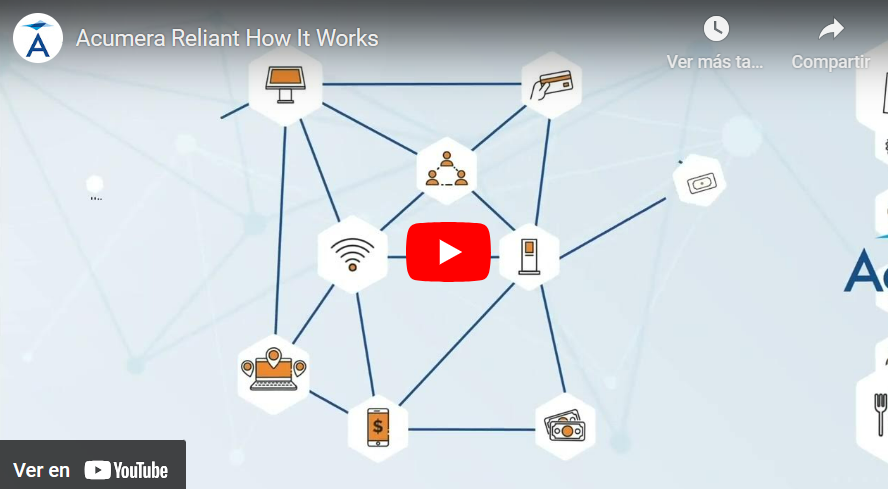

Container orchestration is a transformative shift in software deployment from traditional practices. In the past, applications were monolithic, running on dedicated servers. This posed challenges such as limited scalability, downtime during updates, and inefficient resource allocation.
The emergence of containers changed this landscape. Containers encapsulate applications and dependencies, offering portability and consistency across different environments. However, managing numerous containers across dynamic environments introduced complexities.
Container orchestration addresses these challenges by automating container management within clusters. It streamlines deployment, scaling, load balancing, and fault tolerance. This automation ensures efficient and seamless operation.
The shift to container orchestration allows applications to scale dynamically, maintain high availability, optimize resource utilization, and establish consistent deployment processes. It marks a profound change in how software is developed and managed, breaking monolithic applications into manageable components. This transition empowers organizations with increased agility, reliability, and efficiency, driving the future of software deployment.
Learn more how Acumera provides this optimal solution through container orchestration.
Understanding Container Orchestration
Container orchestration is a vital aspect of modern software development and deployment. At its core, it is a method for automating and managing the deployment, scaling, and operation of containerized applications.
Containers, lightweight and self-contained units that package an application and its dependencies, have gained widespread adoption due to their consistency and portability. However, as organizations deploy large numbers of containers across diverse environments, they encounter challenges in managing them effectively.
Container orchestration steps in to address these challenges. It provides a framework for automating tasks such as deploying containers, load balancing, scaling applications up or down to meet demand, and ensuring the high availability of services. It also manages the allocation of resources efficiently.
Container orchestration platforms, like Kubernetes and Docker Swarm, enable organizations to streamline the deployment and operation of containerized applications at scale. This technology is used across various industries to achieve agility, scalability, and cost-efficiency in software development and delivery, making it a fundamental component of modern IT infrastructure.
Why is Container Orchestration Needed?
Container orchestration is essential for businesses to streamline and optimize their software operations. In today’s dynamic IT landscape, where applications span diverse environments and experience varying workloads, container orchestration offers critical benefits.
Firstly, it automates essential tasks, such as deploying and managing containers, load balancing, and scaling applications. This automation ensures consistent and efficient operations even as workloads fluctuate.
Secondly, container orchestration enhances resource utilization, reducing costs by efficiently allocating computing resources.
Overall, container orchestration empowers businesses to achieve agility, resilience, and cost-effectiveness in software development and deployment. It’s the cornerstone of managing modern, containerized applications at scale, making it indispensable in today’s competitive IT landscape.
Learn more on how Acumera brings containerization to the forefront.
How does Container Orchestration Work?
Container orchestration works by automating the deployment, scaling, and management of containerized applications within a cluster of servers or nodes. Here’s a simplified overview of the process:
- Containerization: Applications and their dependencies are packaged into containers, ensuring consistency and portability.
- Orchestration Platform: A container orchestration platform (e.g., Kubernetes, Docker Swarm) is chosen to manage containers at scale.
- Cluster Setup: Multiple servers or nodes are grouped into a cluster, forming the infrastructure where containers will run.
- Deployment: Containerized applications are deployed onto the cluster. The orchestration platform handles scheduling, ensuring balanced distribution and resource allocation.
- Scaling: As demand fluctuates, the orchestration platform automatically scales applications up or down by adding or removing containers.
- Load Balancing: Incoming traffic is distributed evenly among containers, optimizing performance and preventing overloads.
- Self-Healing: If a container or node fails, the orchestration platform detects and replaces it to maintain service availability.
- Monitoring and Logging: Continuous monitoring and logging provide insights into container performance and health.
- Updates and Rollbacks: Orchestration simplifies updates and rollbacks, minimizing downtime and errors.
Container orchestration streamlines complex container management tasks, enabling organizations to run applications efficiently, reliably, and at scale.
Benefits of Container Orchestration
Container orchestration offers a multitude of benefits, both for business and IT operations:
- Enhanced Portability: Containers are consistent across environments, enabling applications to run anywhere, from on-premises servers to cloud platforms.
- Streamlined Deployment: Container orchestration automates application deployment, reducing manual errors and speeding up the release cycle.
- Increased Productivity: DevOps teams can focus on innovation instead of manual management tasks, boosting productivity.
- Improved Security: Isolation between containers and automated security measures enhance application security.
- Cost Efficiency: Efficient resource allocation reduces infrastructure costs, improving the bottom line.
- Scalability: Applications can scale seamlessly to meet demand, ensuring optimal performance.
Container orchestration empowers organizations to be agile, secure, and cost-effective, fostering innovation while delivering reliable services.
Container Orchestration Tools
Several container orchestration tools have gained prominence in managing containers and micro-services at scale:
- Kubernetes: Kubernetes, often abbreviated as K8s, is an open-source platform that automates the deployment, scaling, and management of containerized applications. It provides a rich ecosystem of resources for managing containers, making it highly adaptable to various workloads.
- Docker Swarm: Docker Swarm is Docker’s native orchestration tool. It simplifies container management by clustering nodes into a swarm, automating load balancing, and ensuring high availability.
- Amazon ECS: Amazon Elastic Container Service (ECS) is a fully managed container orchestration service on AWS. It simplifies container deployment, scaling, and management, making it an excellent choice for AWS users.
- OpenShift: Red Hat’s OpenShift is an enterprise-grade Kubernetes distribution. It adds additional security and management features on top of Kubernetes, making it well-suited for complex, large-scale deployments.
These tools offer robust solutions for orchestrating containers and micro-services, enabling organizations to scale, deploy, and manage applications with ease and efficiency.
Container Orchestration Examples and Use Cases
- Netflix: Netflix employs Kubernetes for its container orchestration needs. Kubernetes helps manage the vast infrastructure required for streaming services, ensuring high availability and scaling based on viewership spikes.
- Spotify: Spotify utilizes Docker Swarm to orchestrate containers. This allows them to streamline the deployment of micro-services that power their music streaming platform, ensuring a smooth user experience.
- Airbnb: Airbnb relies on Amazon ECS to manage their containerized applications on AWS. ECS simplifies deployment and scaling for Airbnb’s global platform, enhancing efficiency and scalability.
- Pinterest: Pinterest utilizes Kubernetes to orchestrate containers in their infrastructure. Kubernetes aids in maintaining a responsive and reliable platform for millions of users while efficiently managing resources.
- Uber: Uber uses Kubernetes for orchestrating containers to handle its massive ride-sharing and food delivery services. Kubernetes enables Uber to scale its applications seamlessly to meet demand and maintain a reliable service.
These real-world examples demonstrate how a container orchestration tool like Kubernetes, Docker Swarm, and Amazon ECS can empower businesses to efficiently manage complex, large-scale applications, ensuring high availability, scalability, and reliability.
Container Orchestration Challenges
Organizations adopting container orchestration often encounter several challenges, including:
- Complexity: Orchestrating containers can be intricate, especially for those new to the technology. Managing numerous containers, networks, and services demands expertise.
- Networking: Container networking can be complex. Ensuring secure communication between containers and external services is vital but challenging.
- Security: Protecting containerized applications requires careful consideration of vulnerabilities and threats. Container security is a top concern.
- Resource Monitoring: Efficient resource usage is critical. Organizations must monitor and optimize resource allocation to avoid wasted resources or bottlenecks.
Tools to Address Challenges:
To address these challenges, organizations can consider:
- Kubernetes: Kubernetes has a vast ecosystem with tools and resources for managing complexity, improving security, and monitoring resources effectively.
- Docker Swarm: Docker Swarm offers a simpler approach for smaller deployments and users new to container orchestration.
- Third-party Solutions: Various third-party tools specialize in specific aspects of container orchestration, such as security (e.g., Aqua Security) or monitoring (e.g., Prometheus).
When choosing a tool, users should evaluate factors like ease of use, scalability, security features, and community support. Ultimately, the right tool should align with the organization’s needs and expertise level, helping overcome container orchestration challenges effectively.
How Acumera’s Solutions can Help Businesses
Acumera’s container orchestration solutions play a pivotal role in assisting organizations to deploy and manage containerized applications at scale, addressing various challenges in the process:
- Simplified Container Orchestration: Acumera offers user-friendly container orchestration solutions that abstract the complexities of managing containers. This simplification allows organizations to adopt containerization with ease.
- Enhanced Security: Security is paramount in container orchestration. Acumera’s solutions include robust security measures, protecting containerized applications from vulnerabilities and cyber threats.
- Scalability: Acumera’s tools facilitate seamless scaling of applications to meet growing demands, ensuring optimal performance during traffic spikes.
- Resource Optimization: Efficient resource allocation reduces operational costs. Acumera’s solutions help organizations maximize resource usage, ensuring cost-effectiveness.
- Comprehensive Support: Acumera provides comprehensive support and expertise, assisting businesses in navigating the complexities of container orchestration.
By leveraging Acumera’s container orchestration solutions, organizations can embrace the benefits of containerization while mitigating challenges, ultimately achieving agility, reliability, and cost-efficiency in their software deployment and management processes.
See how you can leverage Acumera’s container orchestration solutions for your business.





















